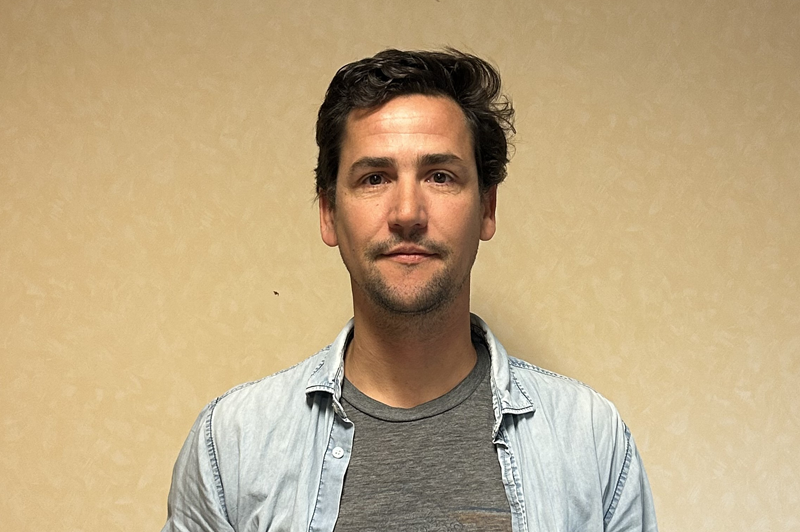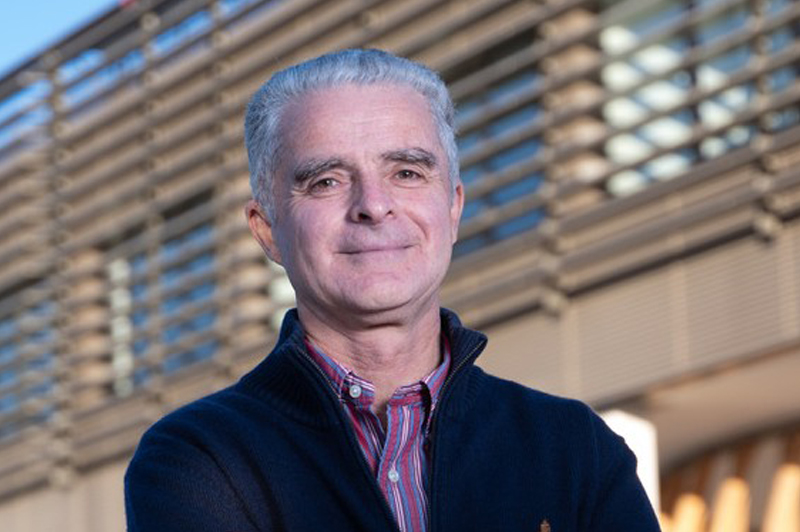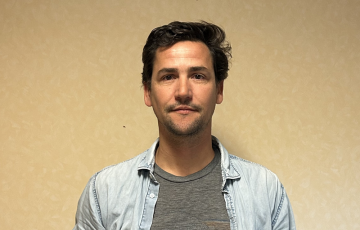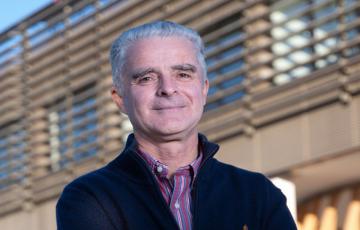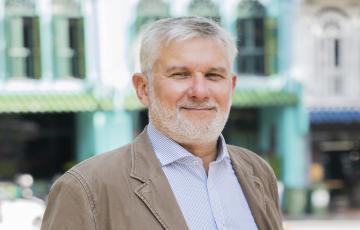EUROMEDITERRANEE
The future is being written here
For more than twenty years, the Euroméditerranée Etablissement Public d’Aménagement (EPA) public development authority has been designing, developing and constructing the sustainable Mediterranean town of the future in the very heart of the Aix-Marseille-Provence metropolitan area.
In its first phase (1995-2015), this Opération d’Intérêt National (national interest initiative) fully accomplished its mission by implementing a general development project, “Le Nouveau Marseille”, on brownfield port land.
This program, run by national and local governments, has shown its value as an unparalleled driver of desirability and economic, social and cultural development.

Euroméditerranée: An economic, social and cultural epicenter
The initiative has significantly boosted the growth and influence of the Aix-Marseille-Provence area. As Europe's largest urban renovation project, this EPA Méditerranée-run operation accounts for 1 million square meters of offices and businesses, and 200,000 square meters of commercial premises. Major redevelopment work has been conducted, including the urban area along the seafront from La Joliette to the La Major cathedral, and the Porte d’Aix and Belle de Mai districts. There has also been considerable renewal and diversification in the hotel sector, with iconic luxury hotels and apartment hotels, homes and even a co-living project in the form of The Babel Community.
Euroméditerranée's geographical area has become one of Europe’s most connected town segments: it is now home to a hundred or so telecoms operators and two major datacenters. An active community in the growing digital sector regularly meets at the “La Coque” innovation center, a flagship location for Aix-Marseille’s French Tech digital industry.
Major cultural and leisure facilities have opened their doors to the public in the surrounding area, such as MUCEM, Regards de Provence, Le Frac, Les Terrasses du Port, Les Voûtes and Les Docks Village, all of which play a role in creating a new central focus and a supported services offering.
The second phase of the operation takes the form of the development of a new model for a sustainable Mediterranean town
Known as EcoCité, and supported by the Investissements d’Avenir investment program, this new 170-hectare development area, to the north of the original 310 hectare plot, is intended as an urban development experiment for testing, rolling out and developing innovative services and technologies.
The aim is to design all aspects of the Mediterranean coastal town of the future: sustainable and innovative, bringing an international dimension to the city, with 30,000 additional residents and 20,000 new jobs.
To achieve this goal, Euroméditerranée is employing a variety of methods:
- Housing: All new housing programs adhere to a well-developed environmental philosophy (BBC labeling, BREEAM certification, HQE methods, BDM, etc.). 18,000 new homes are scheduled, 7,000 have already been delivered and 2,000 more will follow by 2020. The new properties under construction will include 4,200 social homes and 2,100 affordable homes.
- Quality of life: The Les Aygalades park (14 hectares) will be central to local quality of life. Two eco-districts, Smartseille and Les Fabriques, will offer unique bioclimatic architecture offering a full set of neighborhood services. ICI Marseille, France's largest makerspace, is open to creative craftspeople, connected designers and entrepreneurial producers, embodying an eco-city vision which is collaborative, innovative and open to all.
- Transportation: Travel is facilitated by a diversified range of public transport options: trams, subway trains, buses and regional express trains. The Capitaine Gèze multimodal urban hub will also include a park and ride facility, a bicycle park and a motorcycle park. For environmental reasons, priority will be given to electric vehicles and non-motorized modes of transport.
- Energy infrastructures: The initiative places great importance on the production of clean energy. Following the opening of the first Thalassia geothermal marine power station in October 2016, the Massileo seawater loop was added to complement this system in late 2017. It will ultimately supply all of the existing local infrastructure, extending the area's geographical boundaries.
- Education: the project includes a major educational component to support young people's futures. The area's educational credentials will be boosted by the construction of 6 school complexes, 6 crèches, 2 middle schools, 1 high school, 1 higher education center, 1 library and 1 boarding school of excellence.
- Economic development: With 100,000m2 of shops and businesses and the market provision of 500,000m2 of office space, the extension will attract new companies and create 20,000 additional jobs.
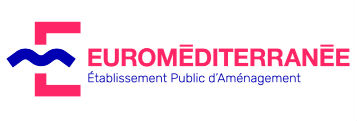
Euroméditerranée: France’s third-largest business district
The initiative led by Euroméditerranée has given a real boost to the creation and establishment of companies in Marseille. The area is now home to some 5,300 establishments in 7 main business areas: construction and real estate, banking and insurance, health, logistics and international commerce, green growth, digital technologies and tourism. A pool of 43,500 direct jobs with a high proportion of middle management (43%) and graduates (68% higher education).
Every year, influential foreign companies and French businesses are choosing to invest in this rapidly-developing district.
The commercial real-estate offering here is dense and varied, with:
- Offices in new or repurposed buildings
- Warehouses with remarkable accessibility
- Business premises at the heart of a multimodal network
- Many ideally located co-working spaces
In 2020, the potential of the Marseille metropolitan area will be boosted by the market provision of 91,200 square meters of real estate, including 49,000 in the Euroméditerranée business district. Among the new offerings: Le Castel Office, l’Adamas, Le Bougainville and EKO Active.


 +33 4 96 11 60 00
+33 4 96 11 60 00






